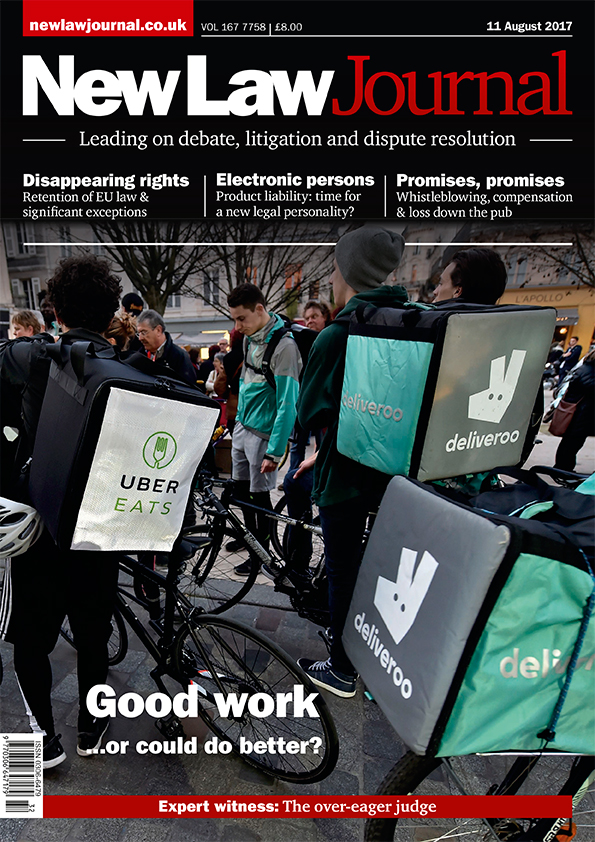
Roger Smith reports on haste, waste & the Rechtwijzer
Can Bob fix it? Steve Hynes hopes the chairman of the Justice Select Committee can halt the catastrophic decline in civil legal aid
Ian Smith returns to share some tales of whistleblowing, compensation & loss
Stephen Levinson puts the Taylor Review recommendations under the spotlight & finds them wanting
Product liability law has to get to grips with the emerging complexities of artificial intelligence, say David Kidman & Stephen Turner
Trevor Tayleur discusses some significant exclusions from the scope of retained EU law post-Brexit
Computers cannot & should not replace the experience of practitioners & the judiciary, says Francis Kendall
MOVERS & SHAKERS

NLJ Career Profile: Ken Fowlie, Stowe Family Law
Ken Fowlie, chairman of Stowe Family Law, reflects on more than 30 years in legal services after ‘falling into law’

Jackson Lees Group—Jannina Barker, Laura Beattie & Catherine McCrindle
Firm promotes senior associate and team leader as wills, trusts and probate team expands

Asserson—Michael Francos-Downs
Manchester real estate finance practice welcomes legal director







